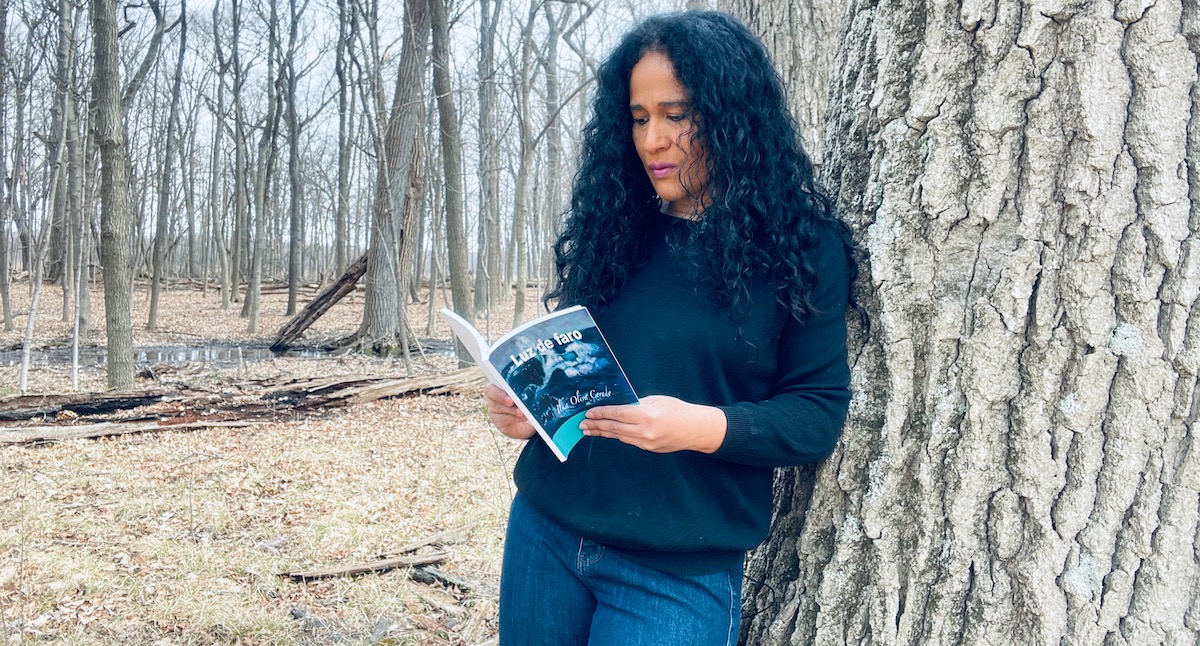Translated by Marvin Najarro
At the beginning, Filomena used to write down in Spanish the list of groceries to shop at the super market, which she had translated with the help of an English-Spanish translator; everything was for kosher food. In her native Sibaná, El Asintal, Retalhuleu, Guatemala, she never heard about the Jewish religion, let alone kosher food. It was in Chicago, where she discovered that world of strange food and rituals.
At first, it all seemed like gringo tricks to her, as the evangelicals with their loudspeakers blaring on Sunday worship in her village, or the bunch of penitents pretending to be saints during the Holly Week processions, but who beat up their wives in their houses. Kosher food, Filomena said to herself, but very stingy to pay the workers a fair wage.
Filomena had the short end of the stick in that job: cleaning the house, doing the laundry, cooking kosher food, and getting the children ready for school; children she loved and cared for as if she had given birth to them, but who were ashamed of her, the Guatemalan maid who barely spoke English. As an immigrant, Filomena felt that pain, which was the same pain experienced by most maids and nannies who treated and cared for those children as their own.
Her initial impression was that the United States was another world, everything was different, big highways, trains, skyscrapers, public parks and swimming pools were plentiful. After thirty years living in the country, Filomena continues to be surprised by the number of different faces she sees every day when riding on the train to her work. She is amazed to see people from all over the world who speak so many different languages.
She doesn’t know how to drive, because every week, for thirty years, she has been sending most of the money she earns from her job to her family, at first, it was to help her parents and the five children she left behind, at present is for her children and grandchildren; each one of her children own a house that she bought and furnished for them. Three times a year, she goes out of her way in order to send them parcels of clothes, shoes, toys and electrical appliances, everything that can enter the mind of her children and grandchildren who send her lists of things they want.
The last time she received a call from one of her children was on Mother’s Day, ten years ago. It is painful for Filomena, but she blames herself because she left them when she decided to go to the United States, she thinks that she has no right to ask even for a telephone call from her children. They no longer remember her birthday, and for Christmas she is the one who makes a call.
Soon after arriving, she had the opportunity of marrying a Lebanese immigrant who worked in a kosher bakery, he was forty-five, and she was twenty-six years old, she refused because she didn’t want a stepfather for her children. Filomena, who is fifty-six, and has spent thirty years as an undocumented immigrant, regrets her decision of not marrying the Lebanese, perhaps she would have had a house with a garden, and would not be living in an apartment in Chicago with seven other women, all of them Central American immigrants.
Perhaps, she would have taken him to Guatemala to know the mango de pashte, and the chicos zapotes. Maybe, she would have known Lebanon and enjoyed its food, but it was not meant to be, she tells herself when thinking about that, while she is busy folding clothes at her job. When suffering because of her swollen veins, she thinks that she could have had a medical insurance to which undocumented workers have no access. She is overwhelmed with thoughts of what might have happened if she had had the Lebanese man as her life partner, for she felt attracted to him, and not the drunks that asked her out.
Filomena has always dreamed of a garden, that’s why she made sure that the houses she bought for her children in an exclusive section of Retalhuleu, had plenty of land for a garden with tropical plants. She lives on the third floor of a building that during the winter time the stairs become slippery when the temperatures drop and the snow turns into black ice, it is during this season when Filomena misses the tropical vegetation and the climate of her native Sibaná.
At night she works at a dry cleaner where she mends clothes as a second job, she sleeps only four hours a day, with the money she earns there, she pays her rent and food expenses, but she does not stop believing that someday she would move out of that apartment and buy a house with a garden. In the summer she would grow tomatoes, cilantro, mint, sweet peppers, a few corn plants; she would sit in the shade of a maple tree to drink a punch of carambola, as she used to do it in her childhood, lying in a hammock under the mango de pashte tree. As a utopia, she does not give up hope that someday her children and grandchildren come to visit her. She imagines them all having a meal as a family, and introducing them to the Lebanese man, who still works at the kosher bakery, and her Salvadoran wife, her only family in the United States.
If you share this text in another website and/or social media, please cite the original source and URL: https://cronicasdeunainquilina.com
Ilka Oliva-Corado @ilkaolivacorado






